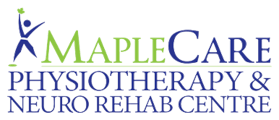Normal Midbrain vs. Parkinson's Midbrain

Click the video below to learn more.
What Is Parkinson's disease?
Parkinson's disease is a progressive neurodegenerative condition. It is caused by insufficient quantities of dopamine - a chemical in the brain. Dopamine enables quick, well-coordinated movement. When dopamine levels fall, movements become slow and awkward. Parkinson's has both motor and non-motor symptoms, and while it cannot be cured it can be treated. Parkinson's disease in Canada is relatively common and approximately 1 in 500 people live with the condition
What Causes Parkinson's disease?
Although we know a lot about the changes in the nerve cells of the brain in Parkinson's disease, we do not yet know what causes or triggers the development of it. Symptoms can be treated but there is no known cure. Researchers across the world continue to investigate new treatments. Parkinson's is often referred to as "Parkinson's disease' but it is not contagious and therefore you cannot pass it from one person to another.
What Are the Symptoms of Parkinson's?
The medical symptoms of Parkinson's are all related to voluntary and involuntary motor function and to non-motor function:
Involuntary motor symptoms can include:
- Tremors - about 70% of people with Parkinson's experience a tremor. Tremor is characterised by shaking, particularly when resting, which often occurs initially in one hand or arm.
- Stiffness - muscle rigidity can make tasks like turning in bed, getting out of a chair, or delicate movements like doing up buttons, difficult. Stiffness can also affect posture and facial expressions, and can lead to muscular aching.
Voluntary motor symptoms can include:
- Slowness of movement (also known as Bradykinesia) - people with Parkinson's often find initiating movements difficult (often called "freezing"), or it might take them longer to perform a task than someone without Parkinson's. This can affect things like repetitive limb movements, handwriting and getting dressed.
Non-motor symptoms can include:
- Depression, anxiety or apathy
- Disturbance of normal sleep
- Fatigue
- Lack of sense of smell
- Constipation
- Trouble swallowing or speaking
- Skin sensations and pain
Other general symptoms include:
- Postural instability - impaired or lost reflexes can make it difficult to adjust posture or maintain balance such as "catching" yourself when you lose balance.
- Gait- individuals with more progressive Parkinson's disease develop a distinctive shuffling walk with a stooped position and a diminished or absent arm swing.
Advanced cases of Parkinson's can lead to dementia. Parkinson's disease dementia is a decline in thinking and reasoning that develops in someone with a history of Parkinson's disease lasting at least one year.
- Changes in memory, concentration and judgement
- Trouble interpreting visual information
- Muffled speech
- Visual hallucinations
- Delusions, especially paranoid ideas
- Depression
- Irritability and anxiety
- Sleep disturbances, including excessive daytime drowsiness and rapid eye movement (REM)
What Can MapleCare Physio & Neuro Rehab Centre Do To Help With Your Parkinson's Symptoms?
Our Wellington physiotherapy clinic has a team of qualified, professional physiotherapists who have been practicing in the field of neurological rehabilitation for many years. At MapleCare Physiotherapy, all interventions begin with a thorough functional and neurological assessment. The progression of Parkinson's disease and the degree of impairment varies from individual to individual. Based on the assessment, we will draw up an active physiotherapy treatment plan that focuses on improving movement and function, and relieving pain so that you can work towards your independance and your quality of life. We will work in conjunction with other health professionals to help you manage your Parkinson's disease.
Our plan will include the following:
- Specific exercises to strengthen weak muscles so that fatigue is reduced, and muscle power and control is regained.
- Helping with techniques on how to perform basic movements, to help improve your mobility/ walking capacity.
- Improving your balance to reduce your risk of falls.
- Improving your coordination.
- The use of massage, electrotherapy and/or acupuncture to help relieve the pain.
- If required we can make recommendations for physical therapy at home, at an outpatient facility, or at a nursing or rehabilitation facility.
We practice physio with absolute dedication at MapleCare Physio, and are at the forefront of physiotherapy in Ottawa. So if you are in need of rehabilitation to help manage your Parkinson's, come in and see us. For all your accident and medical physiotherapy needs we are the physiotherapy professionals you require when it comes to physiotherapy in Ottawa.
